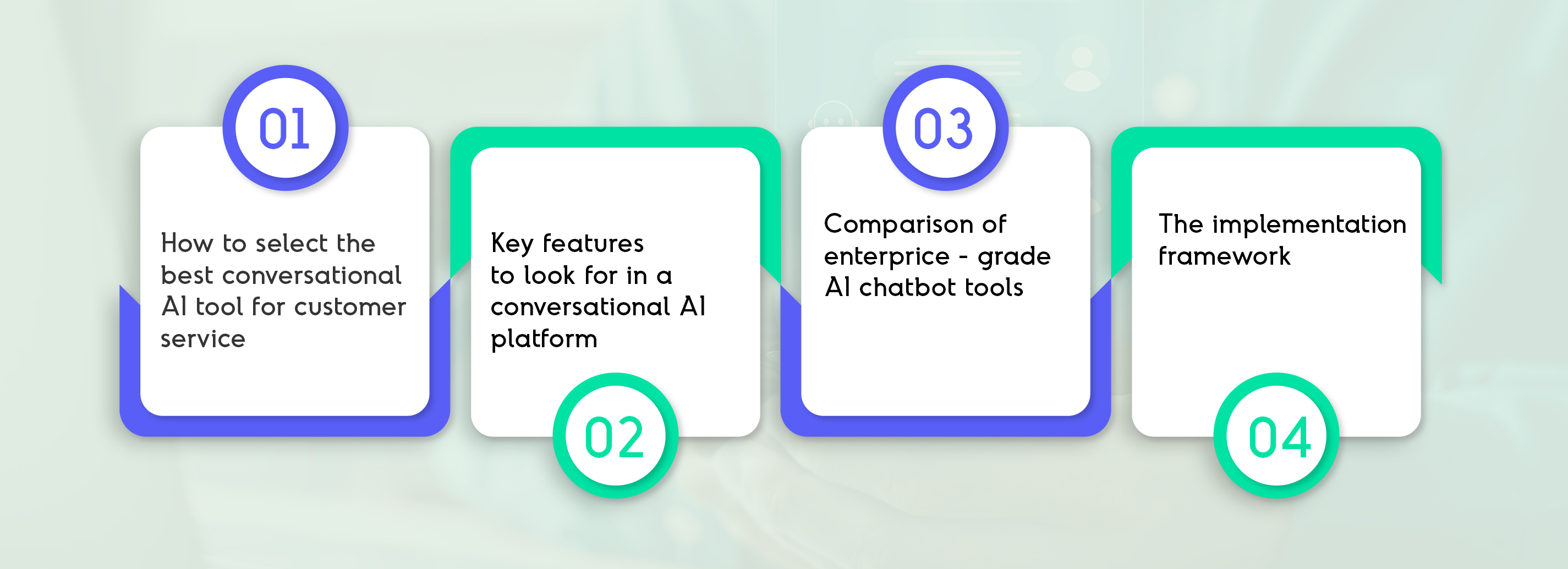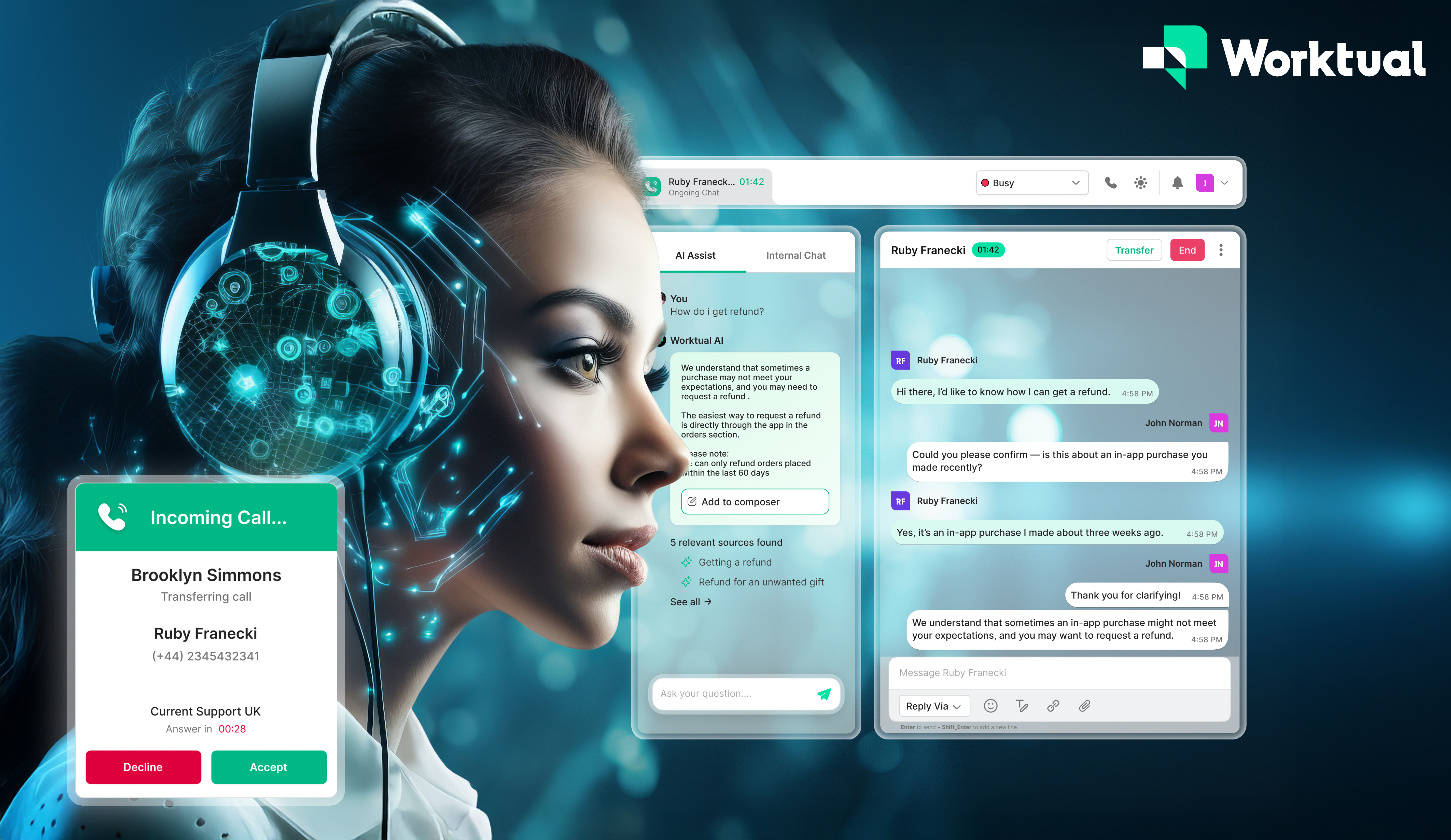How to choose the best conversational Ai tool 2026: a strategic approach to platform selection
Insights / How to choose the best conversational Ai tool 2026: a strategic approach to platform selection

The decision to implement a conversational Ai chatbot represents more than a simple technology upgrade; it fundamentally reshapes how businesses interact with customers. Yet the proliferation of options in the market has created a paradox: whilst businesses have never had more choice in conversational Ai platform for business solutions, the complexity of selecting the right platform has never been greater.
This analysis examines the strategic considerations that should drive your business Ai chatbot comparison process, focusing on the underlying business logic rather than surface-level features.
Understanding The Conversational Ai Landscape
The evolution from rule-based chatbots to sophisticated Ai customer service platforms represents a fundamental shift in customer interaction paradigms. Early implementations were characterised by rigid decision trees that frustrated users and created more work for support teams. Today’s enterprise conversational Ai software leverages natural language processing and machine learning to understand context, intent, and nuance.
However, understanding this technological evolution is less important than recognising its strategic implications. The companies that succeed with Ai-driven customer support are those that view these platforms not as cost-cutting tools, but as customer experience multipliers that enable scale whilst maintaining quality.
The Strategic Importance of Platform Selection
When evaluating scalable Ai solutions, the temptation is to focus on immediate needs: reducing customer queries, improving response times, or cutting costs. Whilst these are valid considerations, they represent tactical thinking rather than strategic planning.
The more important question is how your chosen conversational Ai platform for business will enable competitive advantage. This requires understanding three key principles:
Network effects in customer data: The more customer interactions your platform processes, the better it becomes at understanding your specific customer base and industry context. This creates a compounding advantage over time.
Integration depth determines value: Superficial integrations provide superficial value. The Ai communication platform for companies that becomes truly valuable is the one that connects deeply with your existing systems and workflows.
Scalability is about complexity, not just volume: True scalability means handling increasingly sophisticated customer needs without proportional increases in human intervention.
How to Select The Best Conversational Ai Tool for Customer Service
The evaluation process should begin with business model analysis rather than feature comparison. Different business models create different conversational Ai requirements, and understanding this distinction is crucial for choosing the right Ai communication solution for your industry.
Transactional businesses require platforms that excel at guiding customers through purchase decisions and resolving order-related customer queries. The Ai chatbot for SMEs in retail needs robust e-commerce integration and inventory awareness.
Service businesses need platforms that can handle complex troubleshooting and escalate appropriately to human experts. The focus is on qualification and routing rather than resolution.
Subscription businesses require platforms that understand customer lifecycle stages and can proactively address retention issues before they become cancellation requests.

Key Features to Look for In a Conversational Ai Platform
Rather than evaluating features in isolation, consider how they contribute to your strategic objectives:
Natural language processing capabilities should be assessed based on your customer’s communication patterns, not abstract benchmarks. A platform that excels with technical customer queries may struggle with emotional customer service issues.
Omnichannel integration is valuable only if your customers actually use multiple channels. More importantly, the platform should maintain context across channels without forcing customers to repeat information.
Analytics and reporting should provide insights that drive decision-making, not just operational metrics. The best Ai ad generator in 2026 will help you understand customer intent patterns and identify emerging issues before they scale.
Customisation capabilities matter because every business has unique processes and brand voice requirements. The platform should adapt to your business, not force your business to adapt to it.
Comparison of Enterprise-Grade Ai Chatbot Tools
The market has consolidated around several distinct approaches, each with different strategic implications:
Integrated customer experience platforms like Intercom embed conversational Ai within broader customer relationship management systems. This approach provides seamless handoffs between Ai and human agents but may limit integration with external systems.
Specialised conversational Ai platforms such as Worktual focus exclusively on Ai-powered conversations. These platforms often provide superior Ai capabilities and flexibility but require more integration work.
Enterprise software extensions like Zendesk Ai leverage existing customer service investments. This approach minimises implementation complexity but may not deliver the full potential of modern conversational Ai.
The choice between these approaches should align with your broader technology strategy and organisational capabilities.
Industry-Specific Considerations
Healthcare organisations must prioritise compliance and privacy above all other considerations. The enterprise conversational Ai software that handles patient data must meet strict regulatory requirements whilst providing the conversational sophistication that patients expect.
Financial services require platforms that can securely handle sensitive information whilst providing the immediate responses that customers demand for account customer queries and transaction support.
E-commerce businesses need platforms that understand product catalogues and can provide personalised recommendations whilst seamlessly integrating with inventory and order management systems.
Professional services firms require platforms that can qualify leads effectively whilst projecting the expertise and professionalism that clients expect.
The Implementation Framework
Successful conversational Ai chatbot implementation follows a predictable pattern:
Phase one: Foundation involves selecting the platform based on strategic fit rather than feature lists, establishing integration points with core business systems, and training the Ai on your specific customer interaction patterns.
Phase two: Optimisation focuses on refining conversation flows based on real customer data, expanding the platform’s capabilities to handle more complex customer queries, and developing handoff protocols that maintain customer experience quality.
Phase three: Strategic leverage transforms the platform from a support tool into a business growth driver through proactive customer engagement, predictive issue resolution, and integration with sales and marketing processes.
Comparing Top Conversational Ai Tools
| Platform | Strengths | Best For |
|---|---|---|
| Worktual | Adaptive AI agents, omnichannel dashboard, custom workflows, multilingual support | SMEs to mid-market companies scaling support |
| Intercom | Strong CRM and live chat hybrid features | SaaS businesses with hybrid sales/support needs |
| Zendesk AI | Deep integration with ticketing systems | Existing Zendesk users seeking AI upgrades |
| Drift | Revenue acceleration with AI chatbots | B2B lead gen and sales-driven teams |
Worktual is especially popular with companies seeking Ai communication platforms that combine ease of use with enterprise-grade power.
Online Retail Success
One UK-based retailer using Worktual reduced support costs by 40% and halved response times within the first three months of deployment. Another fintech firm integrated Worktual’s Ai customer service platform across web and WhatsApp, improving CSAT scores by 22% – all without adding extra headcount.
These aren’t edge cases. Ai-driven customer support is now central to staying competitive.
Final Checklist Before you Commit
Here’s a quick readiness checklist before choosing your platform:
- Have you defined your support and automation goals?
- Do you know your peak channels and query types?
- Have you trialed at least 2–3 platforms with real customer data?
- Is your team ready to manage or co-pilot the Ai tool?
- Do you have KPIs set for success measurement?
Making the Final Decision
The conversational Ai platform for business selection process should conclude with a strategic assessment rather than a feature comparison. Ask these questions:
Does this platform align with our customer interaction strategy? Will it enable us to deliver differentiated customer experiences? Can it scale with our business growth and increasing sophistication? Does it integrate with our broader technology ecosystem?
The answers to these questions matter more than any individual feature or capability.
Looking Ahead: The Future of Conversational Ai
The scalable Ai solutions that will dominate in 2026 and beyond are those that move beyond simple query resolution to become true customer intelligence platforms. These systems will understand customer intent before it’s expressed, predict needs before they arise, and provide proactive value rather than reactive support.
Businesses that choose platforms with this evolution in mind will build sustainable competitive advantages. Those who focus only on current needs will find themselves implementing new platforms every few years as their requirements outgrow their technology choices.
The strategic choice is clear: invest in Ai-driven customer support platforms that can grow with your business and enhance your competitive position, rather than simply reducing costs or improving operational metrics.
Frequently Asked Questions
1. What should be the primary consideration when comparing different conversational Ai platforms?
Strategic alignment with your business model and customer interaction patterns should take precedence over feature comparison. The best conversational Ai tool 2026 is the one that enhances your competitive position rather than simply reducing operational costs.
2. How important is industry-specific functionality in conversational Ai platforms?
Industry-specific features matter less than the platform’s ability to adapt to your unique business processes and customer needs. Focus on enterprise conversational Ai software that can be customised rather than platforms with predetermined industry configurations.
3. What’s the biggest mistake businesses make when selecting conversational Ai platforms?
Optimising for current needs rather than future growth. The conversational Ai platform for business you choose should enable strategic capabilities you don’t yet need, not just solve problems you currently have.
4. How should small businesses approach conversational Ai platform selection differently from enterprises?
SMEs should prioritise platforms that provide enterprise-grade capabilities without the complexity typically associated with enterprise-level solutions. The ideal Ai chatbot for SMEs offers sophisticated Ai functionality through simple implementation and management interfaces.
5. What role should integration capabilities play in platform selection?
Integration depth directly correlates with platform value. The Ai communication platform for companies that connects superficially with your existing systems will provide superficial value. Prioritise platforms that can integrate meaningfully with your core business systems.
Related Posts

Contact Center Ai Explained: What It Is, How It Works & How to Use It
Customer support becomes complicated when queries accumulate and responses slow down.
With frustrated customers quitting on you and agents feeling exhausted trying to retain them, the situation is going beyond your control. As issues increase, you feel trapped, with no clear way to regain control.

How Agentic Ai Contact Centers are Changing Traditional Contact Centers
Customer support becomes complicated when queries accumulate and responses slow down.
With frustrated customers quitting on you and agents feeling exhausted trying to retain them, the situation is going beyond your control. As issues increase, you feel trapped, with no clear way to regain control.

Voicebots vs Voice Ai Agents: Enterprise Customer Service in 2026
Customer support becomes complicated when queries accumulate and responses slow down.
With frustrated customers quitting on you and agents feeling exhausted trying to retain them, the situation is going beyond your control. As issues increase, you feel trapped, with no clear way to regain control.
